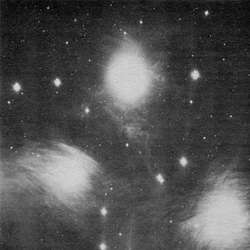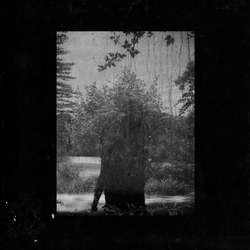The Man Who Died in His Boat (released February 2013) is a collection of songs by Grouper, a.k.a. Liz Harris, one-woman ambient/noise/folk/dream-pop impresario of Portland, Oregon. Harris has been active since 2005, the year of her first full-length release, and projects since then have included numerous collaborations, EPs, splits, etc. on multiple labels. Her latest work (from Kranky Records) is, interestingly, not exactly new, but has been mined from recordings dating back to 2008, which saw the release of her highly acclaimed album Dragging a Dead Deer Up a Hill.
The Man Who Died… opens with a short “instrumental” segment of ambiguous, creepy noise. These short vignettes are interspersed between the album’s longer tracks, which makes for a welcome break or dividing point, as it’s often difficult to differentiate between one song and another. This clearly conscious choice serves to make the record an experience to be immersed in, fascinated with, and haunted by afterward.
Most vocals are so laden with effects/drenched in reverb as to make actual lyrics indecipherable. This doesn’t seem to really matter; it’s more about Harris’ delicate, damaging voice and beautifully simple melody lines. Many tracks feature hymnal layers of vocals and subtle, spare harmonies. Also front-and-center is Harris’ guitar playing – she consistently alternates between dainty finger picking and insistent, repetitive down strokes. Such simple, rhythmic strumming patterns (in what often sound like open tunings) make it clear that she’s no guitar wizard, but add to the tribal/chant-like vibe of the album. Some tracks are slightly more complex than others in their layering of plucked strings, dreamy noise, and vocal delay.
These elements create contradictory reactions in the listener – there’s nothing wildly innovative going on here from a strictly musical standpoint. Grouper’s creation is not exactly psychedelic, not “experimental” per se, but meandering, floating, and strangely heart-wrenching in its timidity, beauty, and seeming aimlessness. For instance, she doesn’t seem to have a very extensive vocal range, and vocal delivery is basically void of any dynamic shifts or expressiveness. Yet this fits, given the context, and maybe that’s partly the point – the songs aren’t going to be tidily resolved in the way the listener might be accustomed to, and that’s okay, if occasionally frustrating. Sometimes initially difficult music pays the biggest dividends in the long run.
“Vanishing Point” presents a good example of the album’s provocative nature. Nothing but spooky, atonal-sounding noises possibly coming from the upper register of a piano, the track demands attention and deep listening. This shouldn’t be this interesting, but in a paradoxical way it’s more stimulating to listen to something so simple. This seems like the kind of music one would be driven to create and would create for oneself, regardless of whether or not anybody else ever heard it.
At certain points I’m not sure if this should be lauded more than any other lo-fi recordings being created in bedrooms and basements ‘round the world by artsy, introspective loner-types. Still, Harris’ music creates a sacred space. I can’t do much else while listening to it, except just that – listen – which is a pretty powerful effect for anything to have in an age of innumerable distractions. Wistful, honest, both uplifting and devastating, this is an album to make us slow down.




